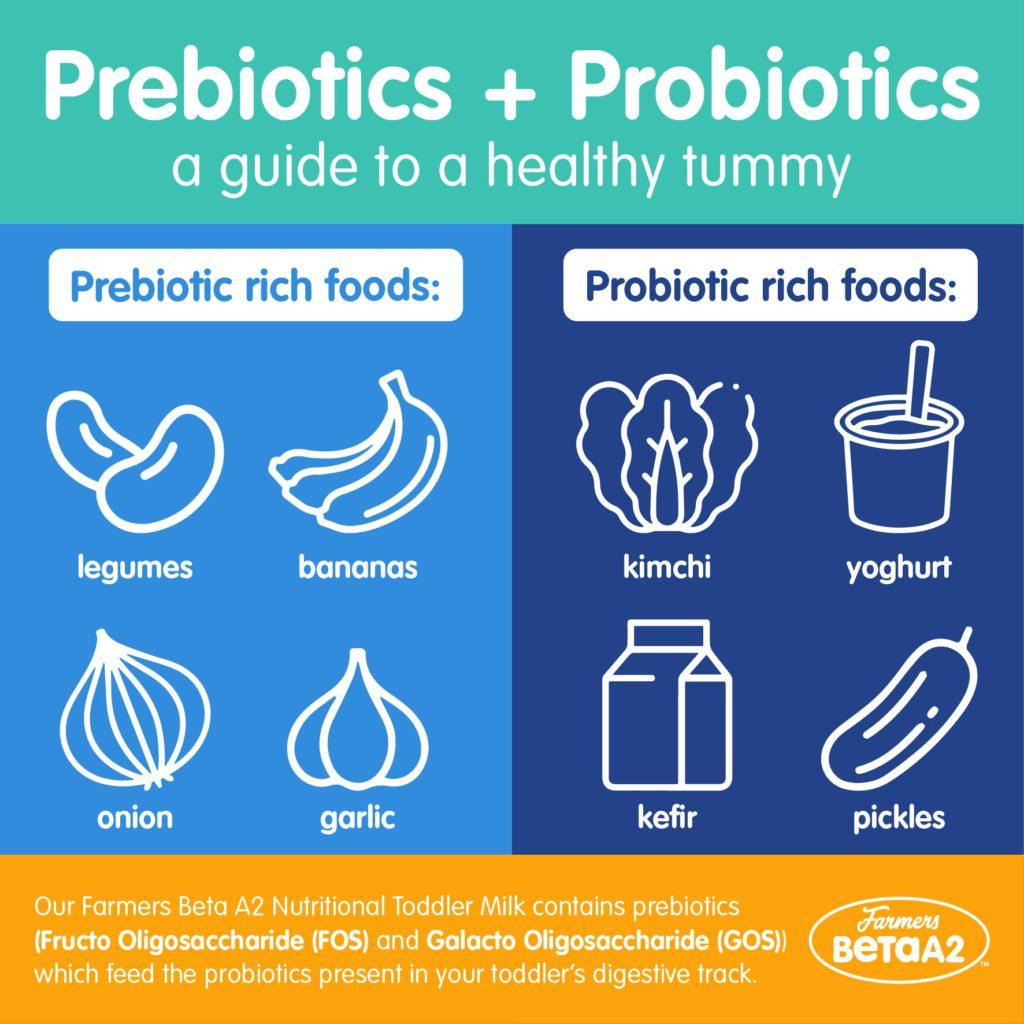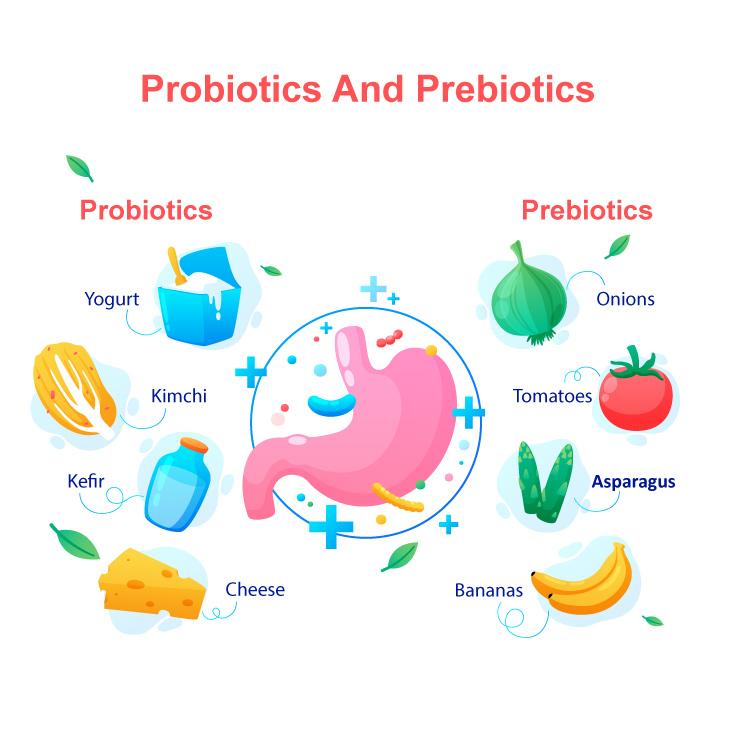
Which foods are high in prebiotics?
The Ultimate Guide to Prebiotics: Benefits, Sources, and More
In recent years, the conversation around gut health has grown significantly, with terms like “probiotics” and “prebiotics” becoming commonplace in health discussions. While most people are familiar with probiotics, prebiotics remain a less understood yet equally important component of a healthy diet. In this comprehensive article, we’ll explore what prebiotics are, their numerous benefits, sources, and practical tips for incorporating them into your daily routine. Let’s dive in!
What Are Prebiotics?
Prebiotics are dietary fibers that feed the beneficial bacteria in your gut. Unlike probiotics, which are live bacteria found in fermented foods, prebiotics are non-digestible carbohydrates that promote the growth of these bacteria. By enhancing the growth of beneficial gut flora, prebiotics play a crucial role in maintaining digestive health and overall well-being.
How Do Prebiotics Work?
Prebiotics work by serving as food for probiotics, the healthy bacteria in your gut. When consumed, prebiotics undergo fermentation in the colon, resulting in the production of short-chain fatty acids (SCFAs) that contribute to gut health. These SCFAs can help regulate metabolism, enhance immune function, and maintain gut integrity.
Benefits of Prebiotics
Incorporating prebiotics into your diet can offer a wide range of health benefits, including:
- Improved Digestive Health: Prebiotics help regulate bowel movements and prevent constipation by promoting the growth of good bacteria.
- Enhanced Immune Function: A healthy gut microbiome bolstered by prebiotics can help ward off infections and illnesses.
- Better Nutrient Absorption: By improving gut health, prebiotics aid in the absorption of essential nutrients, including minerals like calcium and magnesium.
- Weight Management: Some studies suggest that prebiotics can help regulate appetite and reduce body fat.
- Reduced Inflammation: Prebiotics may help lower inflammation levels in the gut, which is linked to various chronic diseases.
Sources of Prebiotics
Prebiotics are widely available in various foods. Here are some of the best sources:
- Chicory Root: A top source of inulin, a type of prebiotic fiber.
- Bananas: Particularly when they are slightly green.
- Onions: Rich in fructooligosaccharides (FOS).
- Garlic: Also high in FOS, garlic supports gut health.
- Asparagus: Contains both inulin and FOS.
- Leeks: A lesser-known source of prebiotics.
- Whole Grains: Barley, oats, and wheat are good examples.
- Beans and Lentils: Excellent sources of resistant starch.
Prebiotic-Rich Foods Table
| Food | Type of Prebiotic | Health Benefits |
|---|---|---|
| Chicory Root | Inulin | Supports digestion |
| Bananas | Resistant Starch | Boosts energy |
| Garlic | FOS | Enhances immune function |
| Onions | FOS | Improves gut health |
| Asparagus | Inulin | Supports weight management |
Practical Tips for Incorporating Prebiotics into Your Diet
Adding prebiotics to your diet can be simple and enjoyable. Here are some practical tips:
- Start Slow: If you’re new to prebiotics, gradually increase your intake to prevent digestive discomfort.
- Mix and Match: Combine different prebiotic-rich foods in meals or snacks for maximum benefits.
- Experiment with Recipes: Incorporate prebiotic foods into smoothies, salads, and soups.
- Consider Supplements: If dietary sources are insufficient, prebiotic supplements can be an option, but consult with a healthcare provider first.
Case Studies and Real-Life Experiences
Many individuals have reported positive health changes after increasing their prebiotic intake. For instance, a study published in the Journal of Nutrition found that participants who consumed a high-fiber diet rich in prebiotics experienced improved gut health and reduced symptoms of bloating and discomfort.
Another case involved a woman who struggled with IBS. After integrating more prebiotic foods like garlic and onions into her meals, she noticed significant improvements in her symptoms over a few weeks.
Conclusion
prebiotics are essential for maintaining a healthy gut microbiome, which is vital for overall health. By including prebiotic-rich foods in your diet, you can support digestive health, enhance your immune system, and enjoy a variety of other health benefits. Remember to start slow, mix up your sources, and enjoy the journey towards better gut health!
